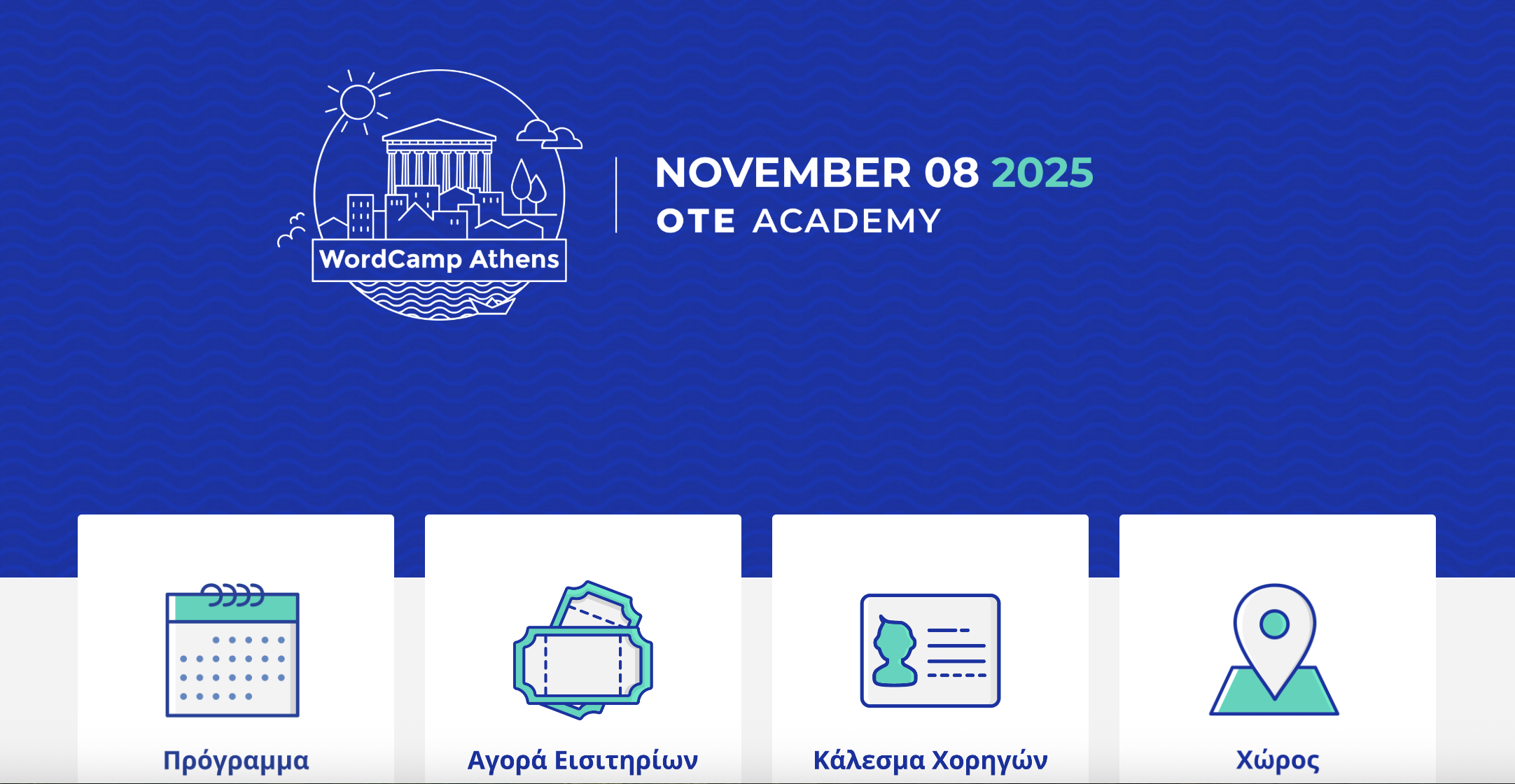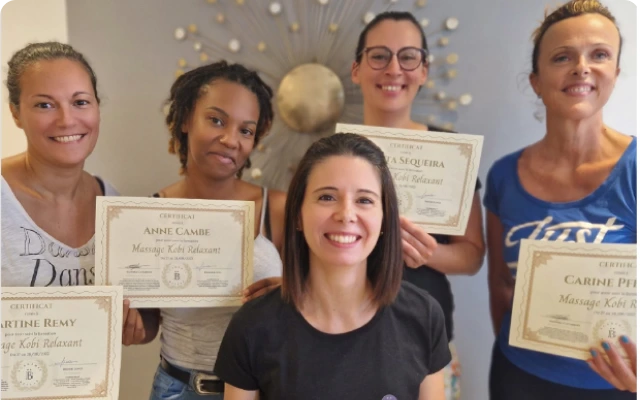Last weekend, Athens became the beating heart of the WordPress world. From the moment attendees stepped into the sleek OTE Academy, the air buzzed with excitement, laptops, and conversations about themes, plugins, and the future of the web. WordCamp Athens 2025 wasn’t just an event. It was a living, breathing showcase of community, creativity, and curiosity.
Morning Energy: Coffee, Code, and Connections
The day started with the unmistakable WordCamp rhythm: coffee in hand, name badges on, and a room full of eager minds ready to learn. From developers refining complex workflows to designers exploring the latest UX trends, everyone brought a spark of curiosity. Old friends greeted each other, new connections formed over shared challenges, and the first WordCamp Athens talks set the tone: knowledge shared, ideas sparked, and collaborations born.
Standout Sessions: Ideas That Stuck
Orestis Samaras opened the morning with a deep dive into Composer for WordPress development, showing how modern dependency management can streamline workflows and make plugin development more efficient. Developers left the session buzzing with practical tips to level up their projects.
Jovana Smoljanovic Tucakov tackled one of the hottest topics in WordPress today: AI-powered content creation. Through real-world examples and case studies, attendees explored when AI helps, when it hinders, and how a hybrid AI-human approach can produce the best results.
Led by Uros Tasic, the “Mastering WordPress playground” workshop was a hit for developers who want to streamline how they release plugins and themes. For many, it wasn’t just a workshop. It was an invitation to rethink how we build and ship WordPress code, making the process safer, cleaner, and more professional.
In his talk, Steve Mosby shifted the focus from code to community. He talked about how open-source projects don’t just need contributors — they need human connection. Steve explored stories from WordPress contributors, maintainers, and everyday users, drawing a connection between code and the wider human ecosystem that sustains it. It was a moving reminder that behind every plugin or theme is someone who cares deeply about making things better.
Ina Hajdari shared how narrative can convert visitors. Through real examples, Ina showed how to craft website copy and structure that feels like a story: welcoming, guiding, and ultimately persuading.
Marko Nikolic demystified one of the most critical performance topics in modern web development: Core Web Vitals. Marko didn’t just talk theory — he gave actionable advice for measuring and improving these vital metrics in WordPress sites.
Community Magic: Beyond the Stage
WordCamp Athens wasn’t just about the talks — it was about the conversations that happened in the hallways, over coffee, and long after the sessions ended. The venue buzzed with the unmistakable sound of a community happy to be together again.
Lunch breaks almost felt too short. People bounced between project ideas, shared pain points, and swapped stories about clients, side projects, and the ever-changing world of WordPress. What stood out wasn’t just the knowledge, but the openness and willingness to teach, share, and lift each other up.
Agency owners connected with freelancers. Newcomers found mentors without even looking for them. Someone who walked in knowing almost nobody left with Slack invitations, GitHub links, handshake promises, and new collaborators.
Takeaways: Lessons Etched in Code and Conversation
- AI is here to stay, but human judgment remains the most important factor.
- Collaboration fuels growth — contributor days and local meetups create learning opportunities that last long after the event ends.
- Connections are gold — sometimes the person you meet between sessions ends up being the solution to your next project challenge.
Moments to Remember
It wasn’t just the schedule that made WordCamp Athens memorable. It was the tiny, powerful moments that stitched the event together. The moments that didn’t appear on the agenda, but defined the experience.
One of the best examples happened right at the start. The first session of the morning filled up so fast that volunteers had to rush in extra chairs. Then more chairs. And then… well, chairs ran out. People stood along the walls and a small crowd even gathered in the hallway trying to listen in.
The speaker laughed, started the introduction, and then had to do it again once even more latecomers squeezed inside. It was the perfect opening snapshot of the event: more passion, more interest, and more people hungry to learn than anyone expected.
Then there were the coffee-break circles — small groups that formed organically around a topic, an idea, or simply a curious question. Someone would mention performance bottlenecks, and suddenly three developers had pulled out laptops, pointing at queries and scripts. On another table, two designers swapped workflow hacks and shortcuts. Somewhere else, a freelance writer and an agency owner realized they’d been looking for someone exactly like the other.
For a few minutes at a time, these informal huddles transformed hallways into brainstorming hubs, proving that sometimes the best “sessions” happen without a stage.
Attendees weren’t just networking. They were building relationships. Exchanging ideas, insights, business cards, LinkedIn profiles, handshakes, and future collaboration possibilities. You could watch people leave a conversation taller than they came in, armed with fresh solutions or new confidence.
And then there were the talks that brought together global experience and local expertise. Speakers from different backgrounds shared practical lessons, creative frameworks, and hard-earned wisdom that resonated deeply within the Greek WordPress community.
By the end of the day, it wasn’t just notebooks that were full — it was minds, calendars, and to-do lists. People walked out motivated, inspired, and energized to take what they learned back into their projects, their businesses, and their clients’ websites.
Looking Ahead: The Next Chapter
As WordCamp Athens 2025 wrapped up, the excitement didn’t end. The Greek WordPress community left inspired, motivated, and ready to contribute. Whether through building better websites, joining meetups, or taking part in the next WordCamp (WordCamp Wrocław, here we come), the momentum continues.
WordCamp Athens 2025 wasn’t just about sessions, slides, or coding demos. It was about the people behind the screens, the stories they shared, and the friendships they forged. It was about showing that, at its core, WordPress is a global ecosystem powered by passion, creativity, and community.

